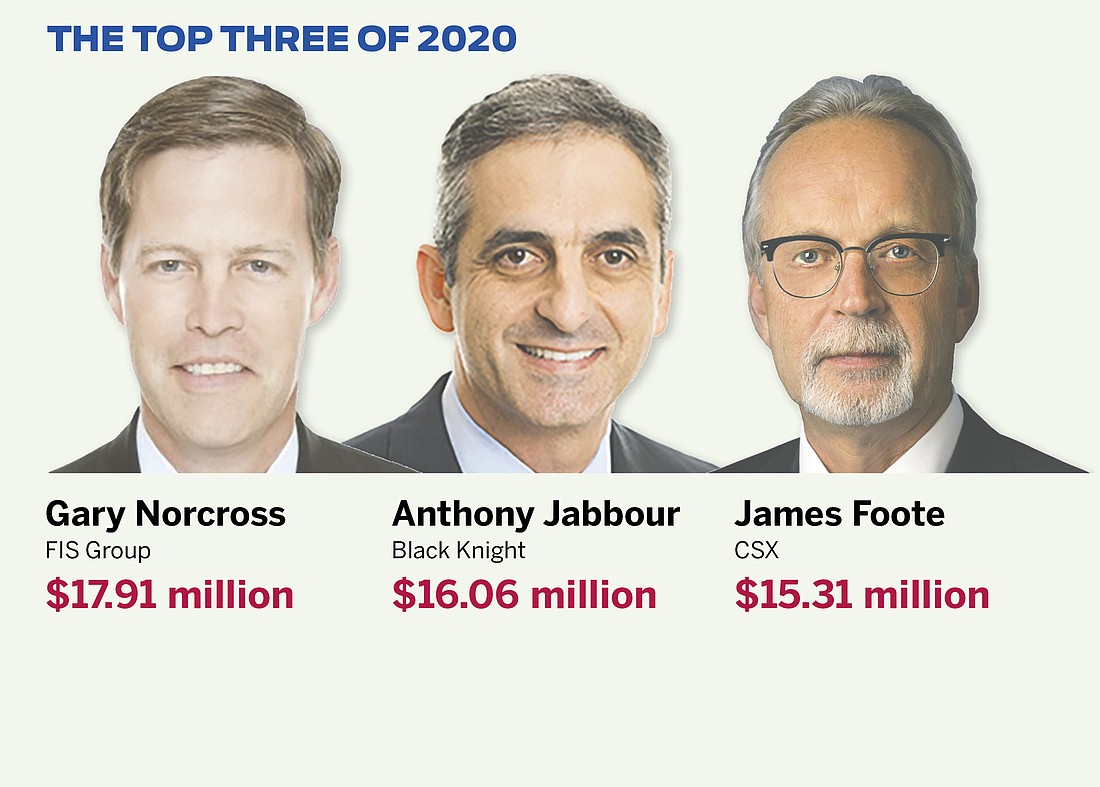
You likely won’t see them getting sympathy, but CEOs of Jacksonville-based companies made less money last year.
The average fiscal 2020 compensation package for those local CEOs fell by 4% last year, according to public filings.
The packages include salaries, cash incentive payouts and the estimated value of stock and option awards the executive received during the fiscal year.
The Jacksonville data counters the national trend at big companies.
The Wall Street Journal reported last month that the median CEO pay at 322 S&P 500 companies rose by 15%.
Many executives took pay cuts as the COVID-19 pandemic affected business, but their total packages still rose because the continued bull market increased the value of their stock awards.
The biggest pay gain among Jacksonville executives did not come from stock gains, however.
Dream Finders Homes Inc. founder and CEO Patrick Zalupski received a $4 million cash bonus last year, before the company’s initial public offering in January.
Fidelity National Information Services Inc. CEO Gary Norcross had the biggest drop in 2020, with his compensation package falling by almost $10 million because of a decline in stock awards and because he didn’t receive a cash incentive payment.
However, Norcross still received $17.9 million from the company commonly known as FIS.
Last week, FIS increased its earnings projections for 2021 but a month earlier, it sent a letter to employees stating it “is not immune from the financial impact the pandemic has had on businesses globally.”
As a result, it said salary increases “will be limited to very targeted adjustments.”
In response to a question about its pay packages, an FIS spokesman said by email the company has taken steps to benefit employees, such as increasing its minimum wage and not having any broad staff reductions.
FIS, which is building a new Jacksonville headquarters, has increased local employment by about 200 since the pandemic began, he said.
“We are pleased with our first quarter results and our start to the year, and continue to be focused on driving the financial performance needed to return to a more normal compensation year in 2022,” he said.